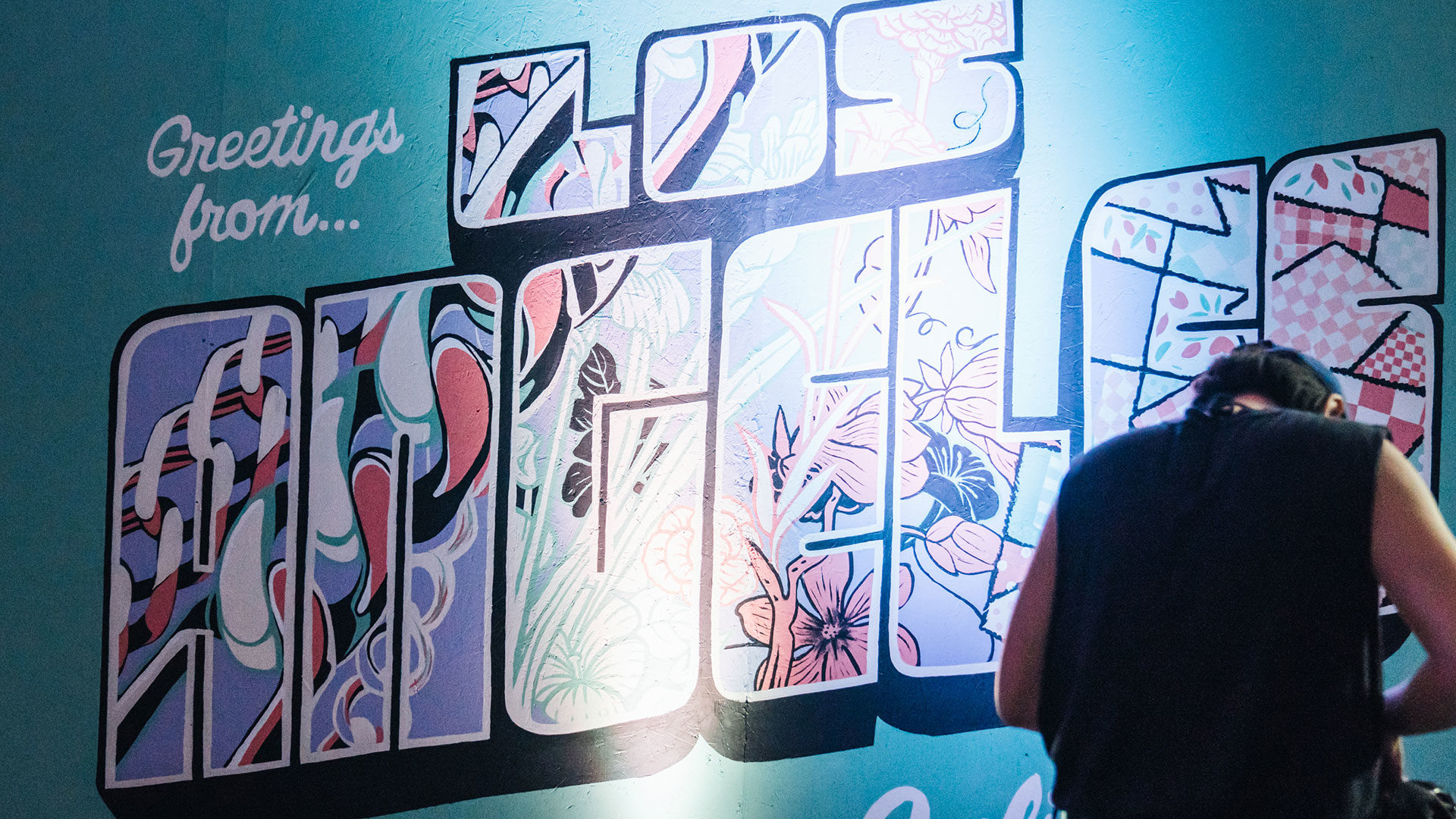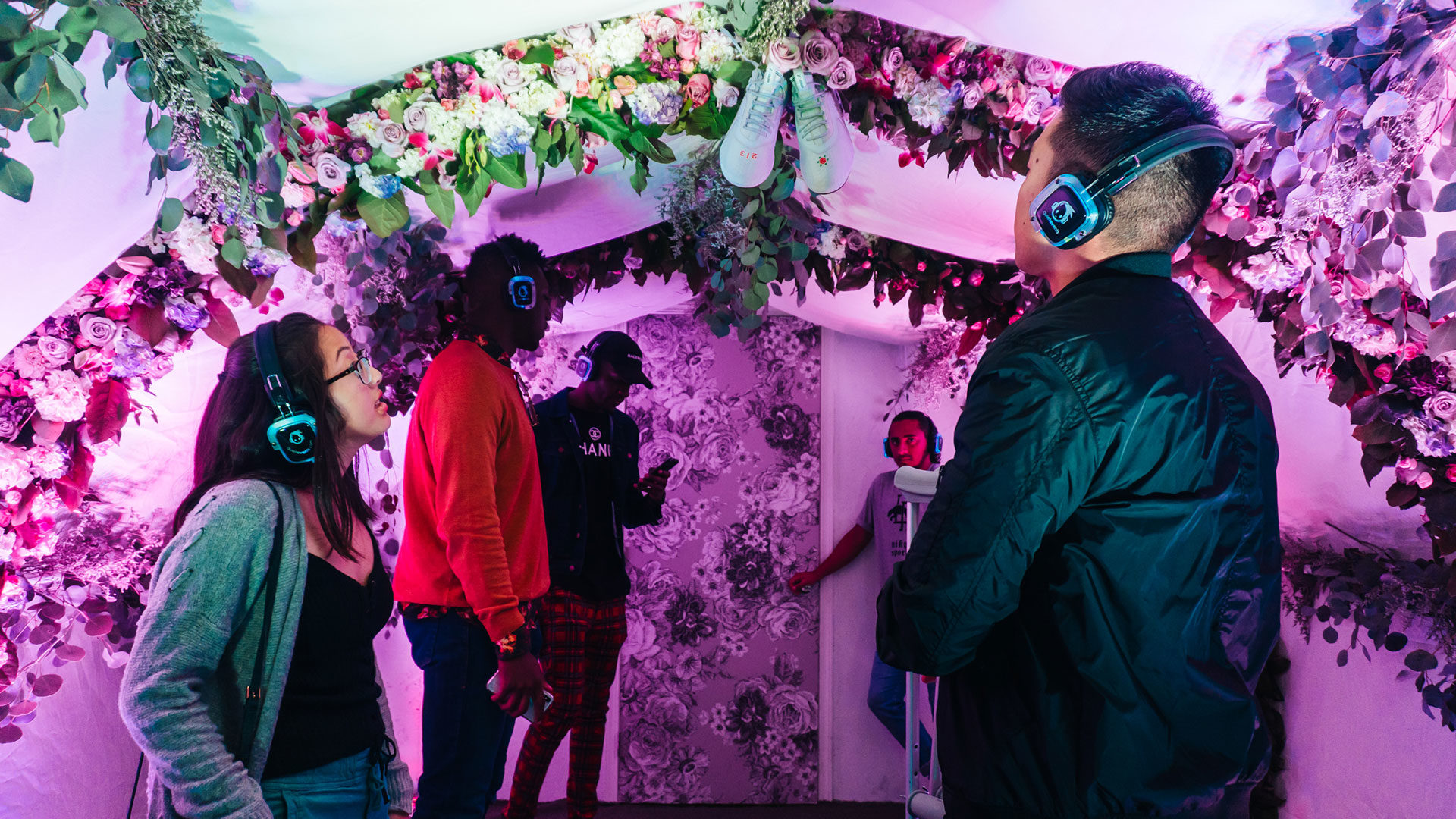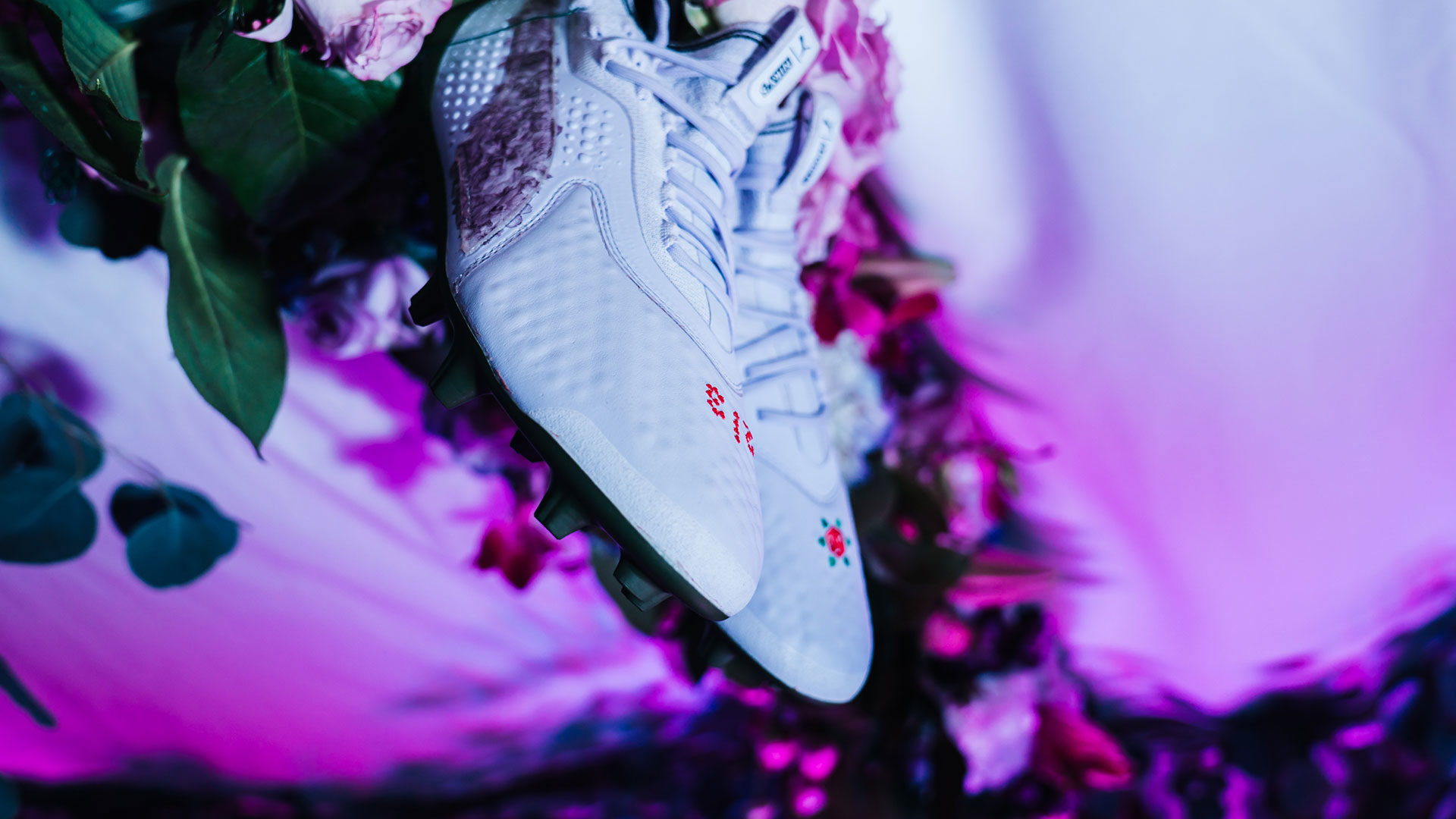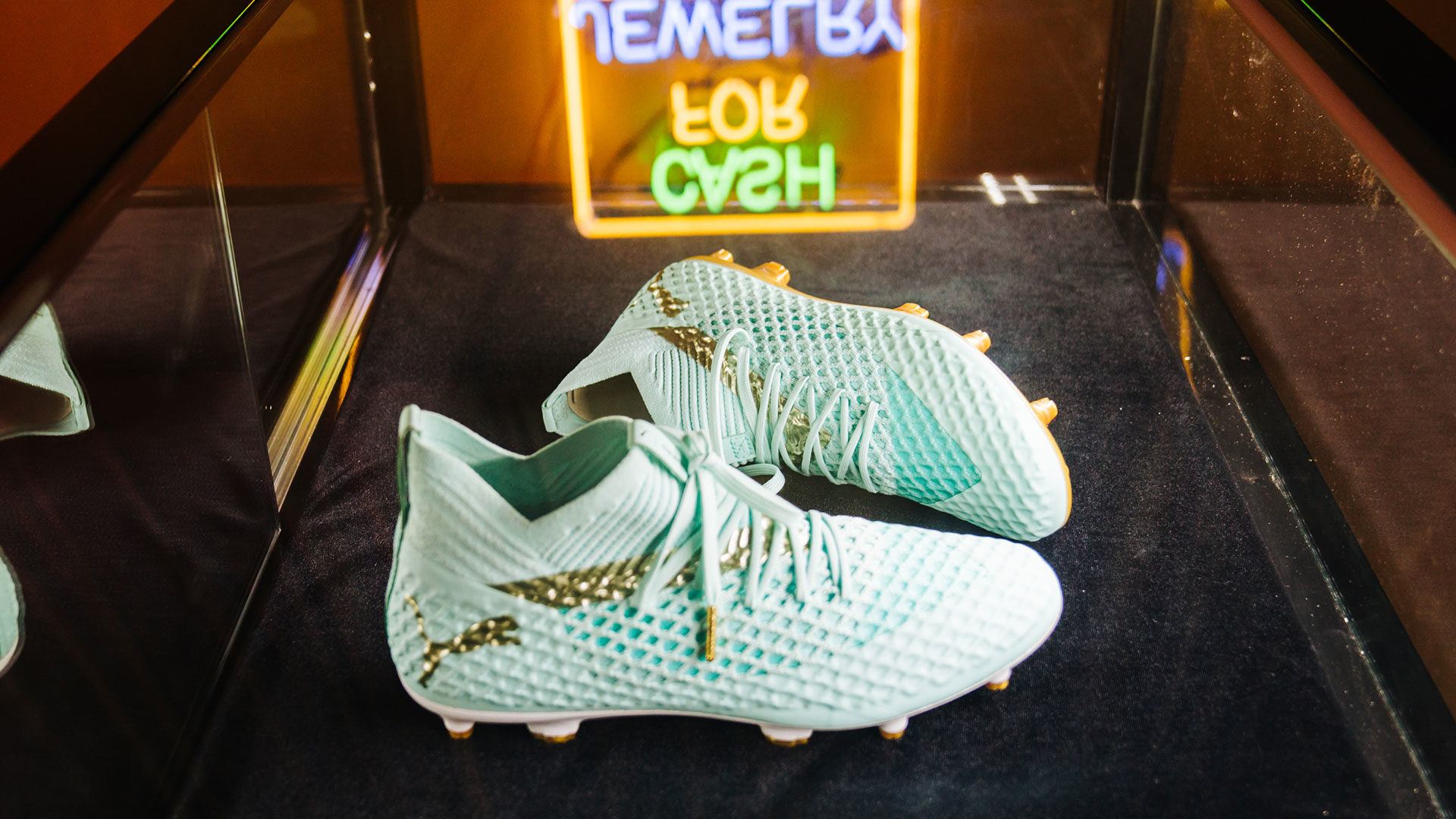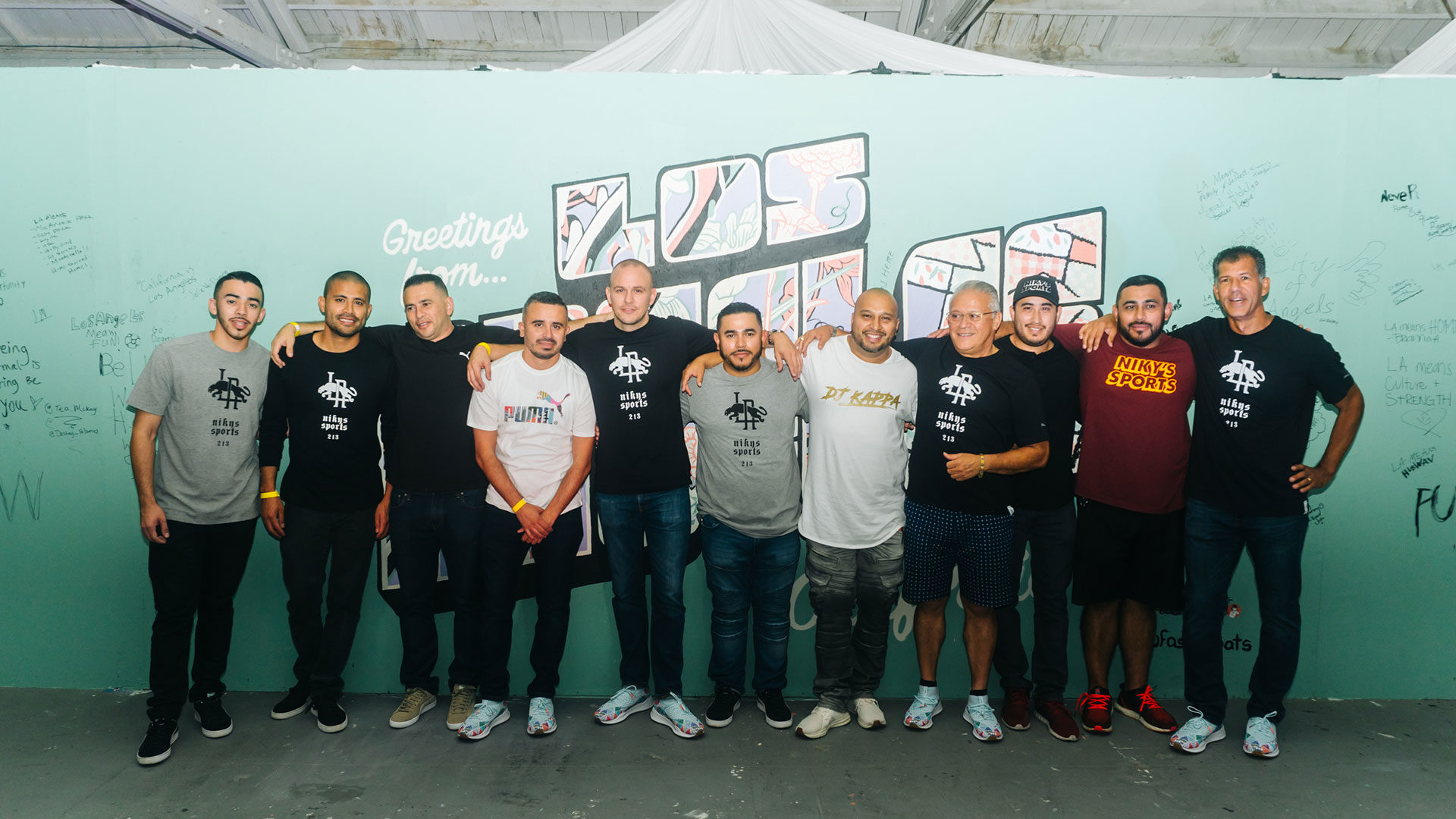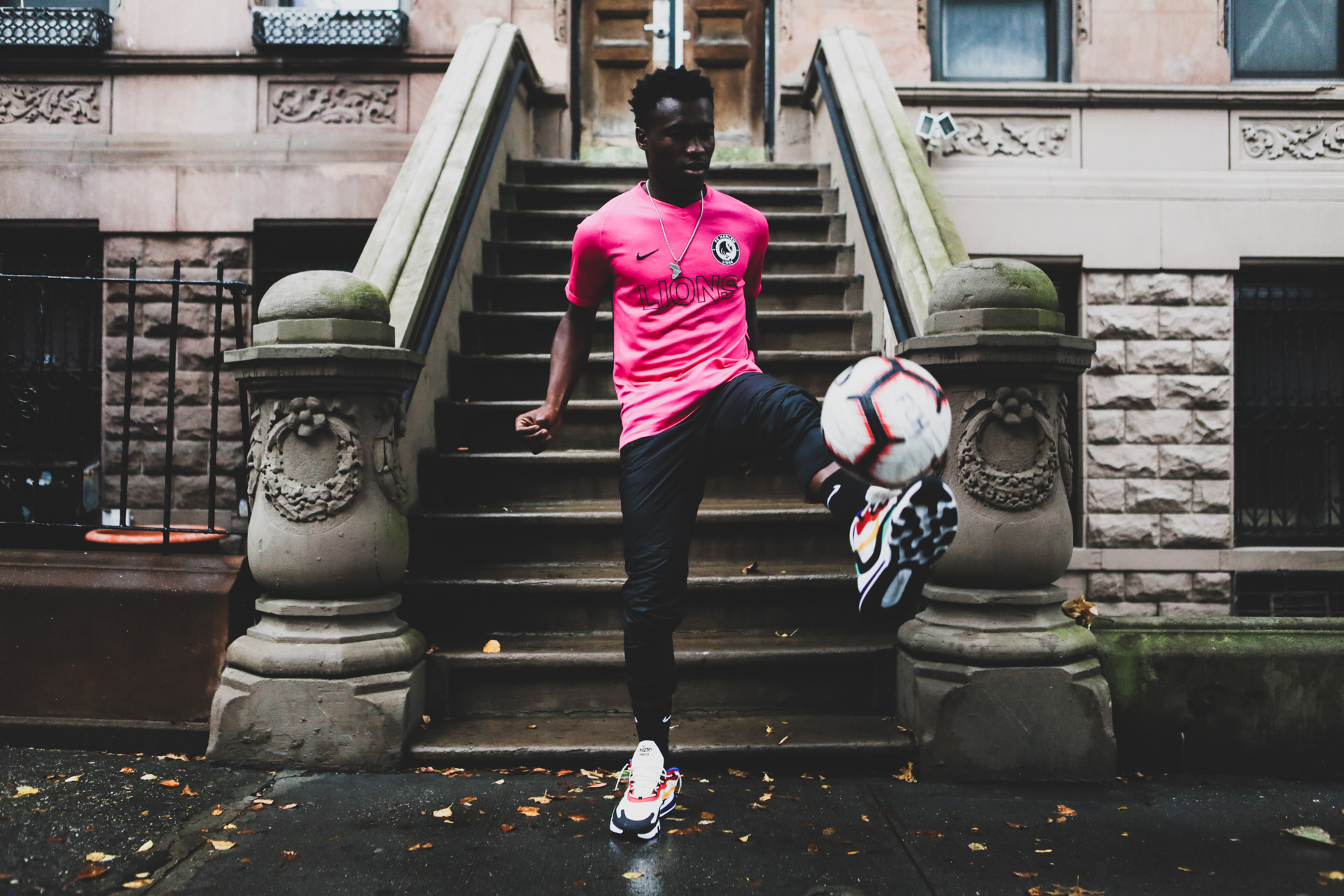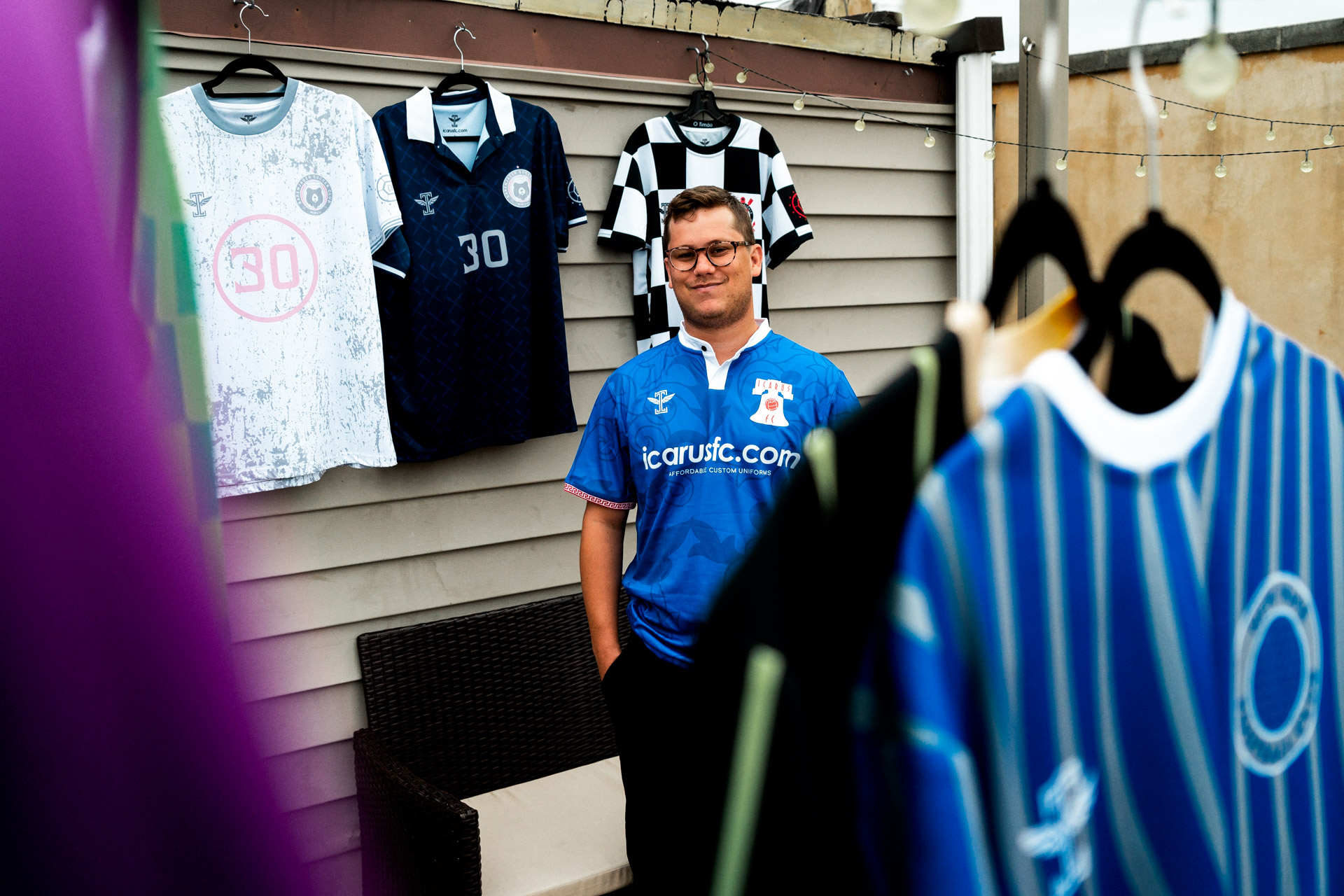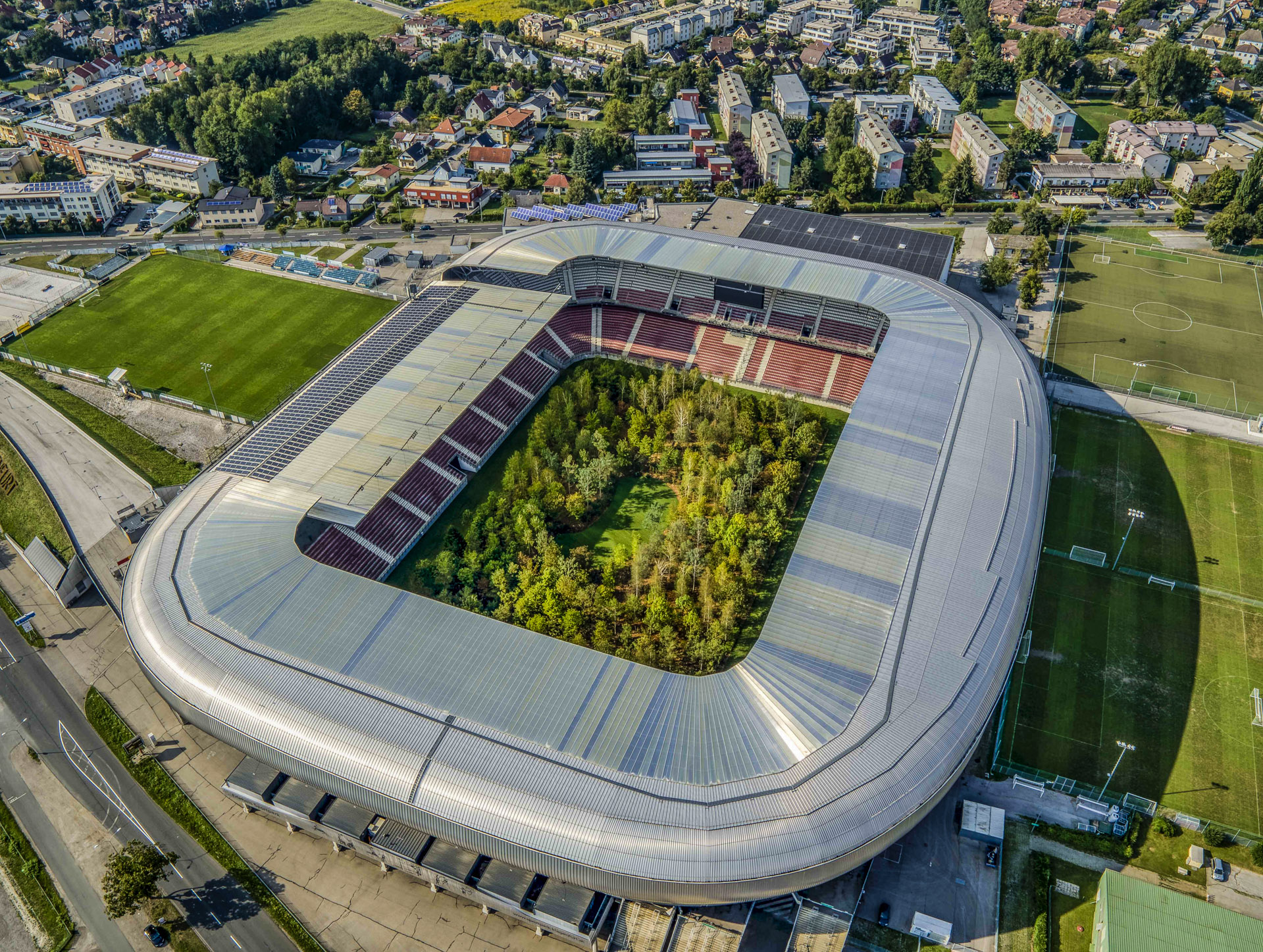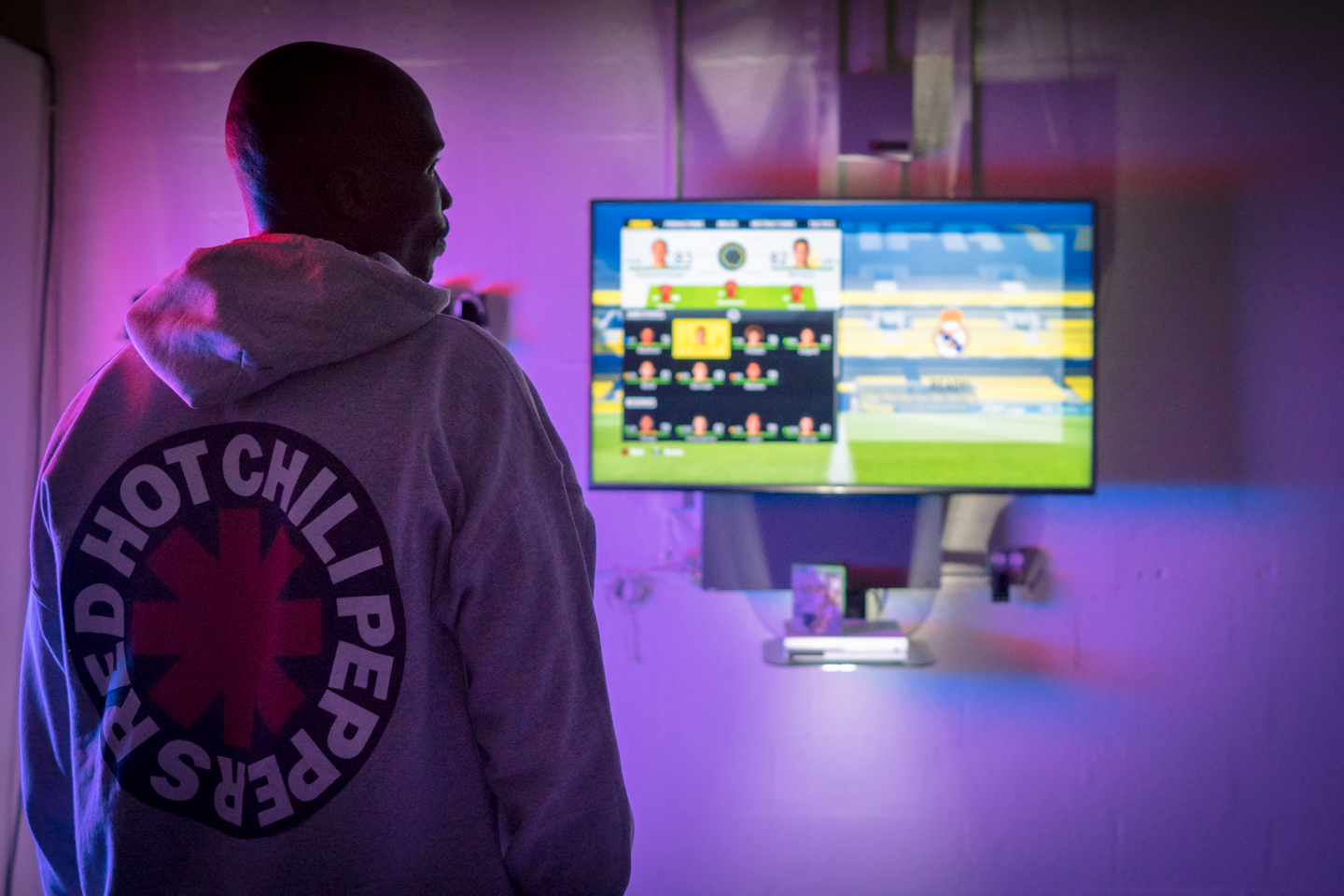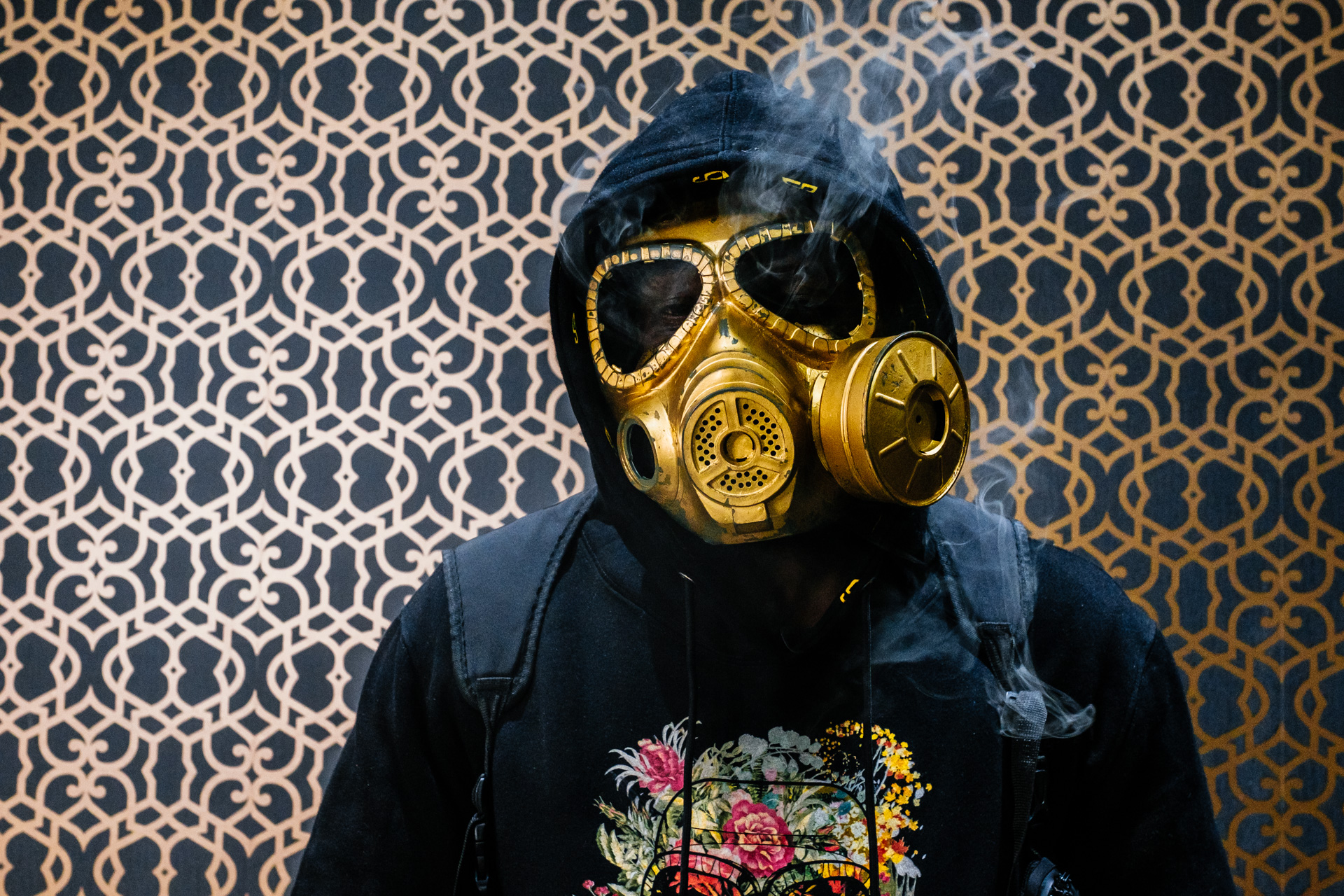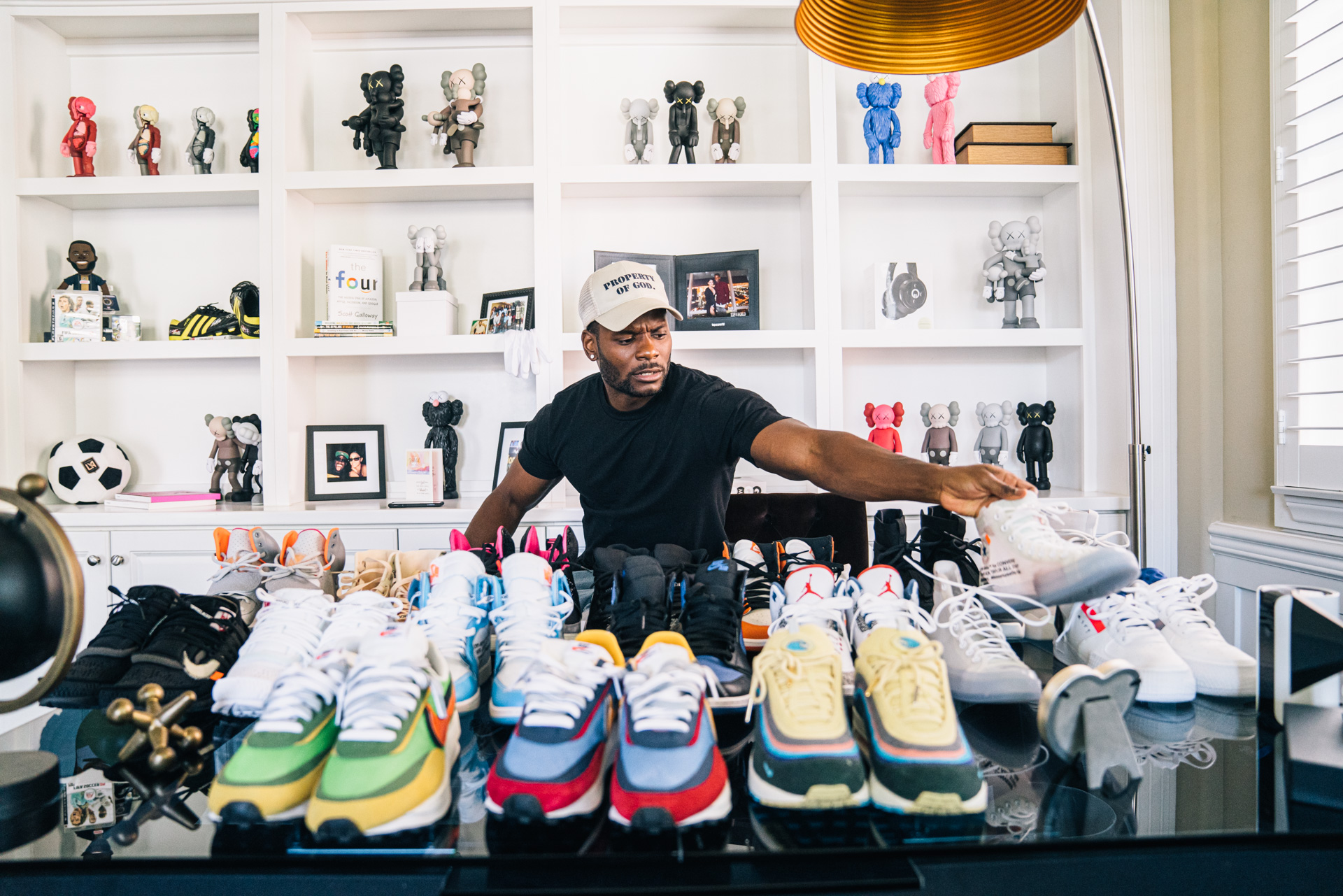FAMILY BUSINESS: NIKY’S SPORTS WITH LUIS ORELLANA
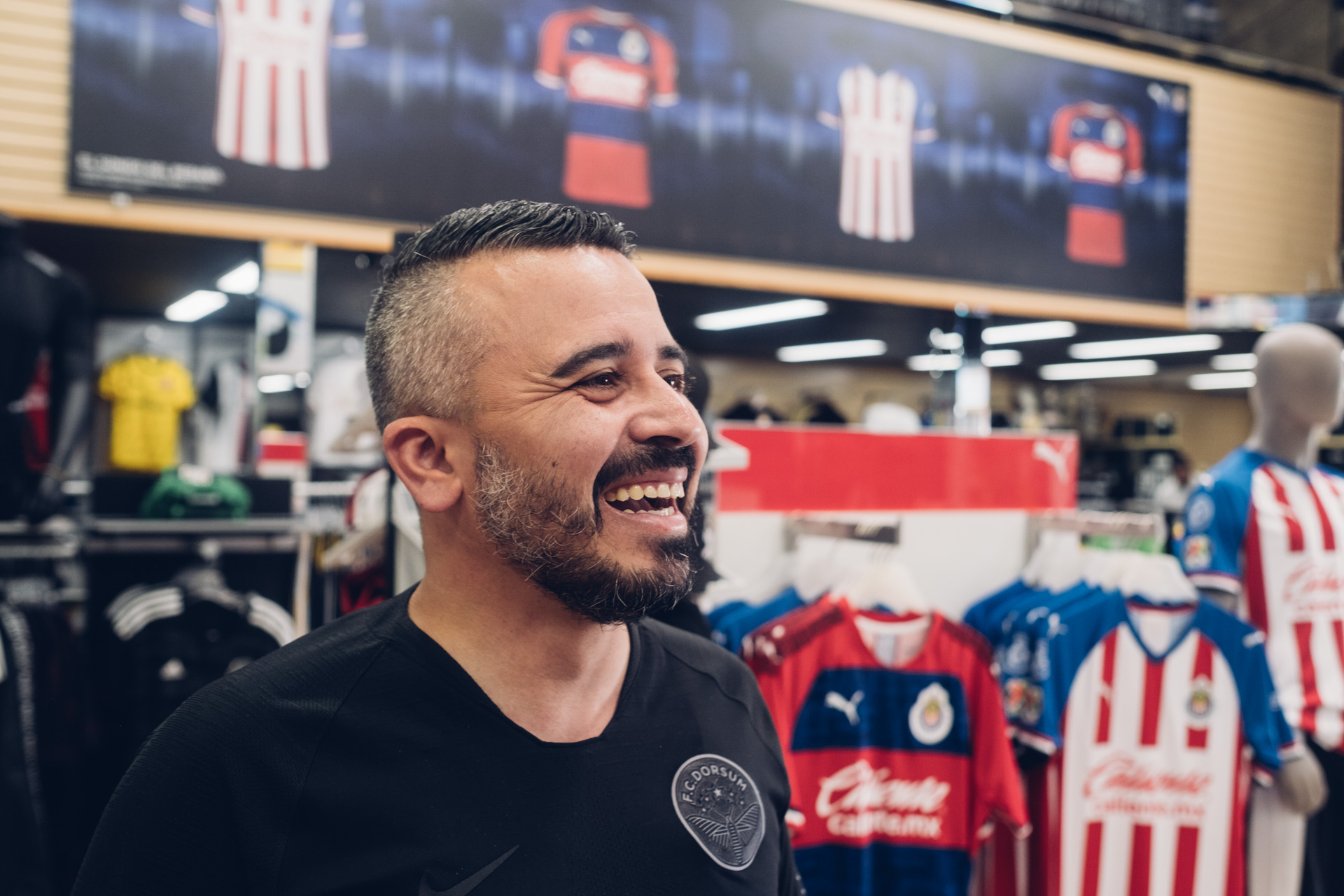
Ask any soccer player in Los Angeles, and there is a good chance that they have had some sort of experience with the soccer retailer Niky’s Sports. Whether that is buying boots or products at one of their stores, attending one of the many events that they put on, or seeing their presence at countless soccer events around the city. Niky’s is an institution in the Los Angeles soccer scene and the people behind it are equally passionate about the beautiful game as they are their brand.
Thirty three years after Niky’s opened their first location, the company now counts eight locations throughout the greater Los Angeles area. The store locations are as diverse as the City of Angels itself and further prove that Niky’s understands not only its customers, but the city they call home.
We sat down with Luis Orellano to talk about all things Niky’s: where they have been and where they are going, what it’s like to grow up in and around soccer stores, and why a genuine love for the game is at the heart of what Niky’s does.
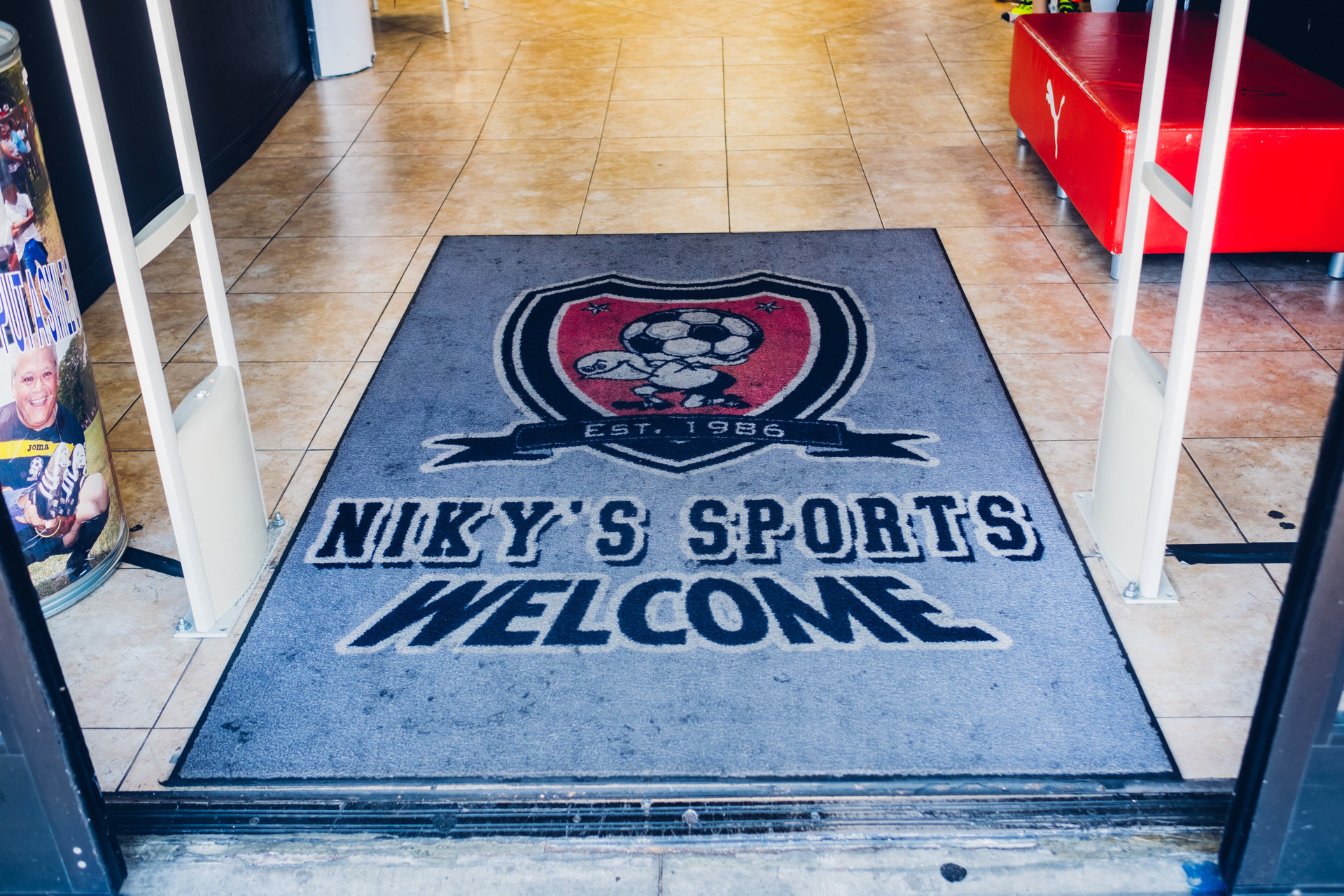
Q: Can you tell us a bit about Niky’s and how it started?
Luis: October 30th, 1986 is the day my dad opened the doors of our first store. The first store is about two blocks west of the store we are currently are sitting in. We’re a family owned business. The majority of the stores are owned jointly by my dad and my uncle. The other two stores are owned by other brothers. Everybody in our family works at one of the stores. The entire family in involved with the business.
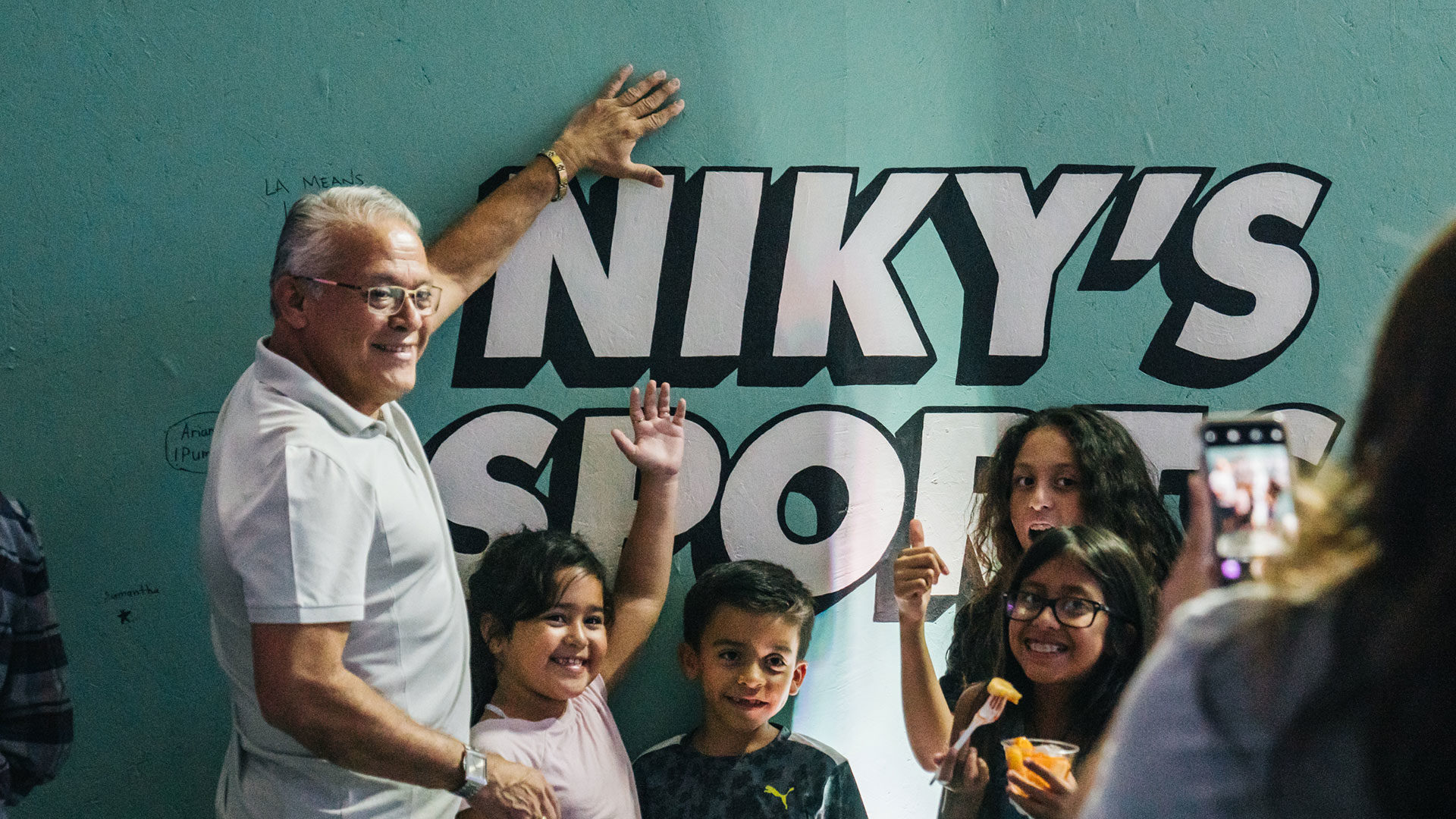
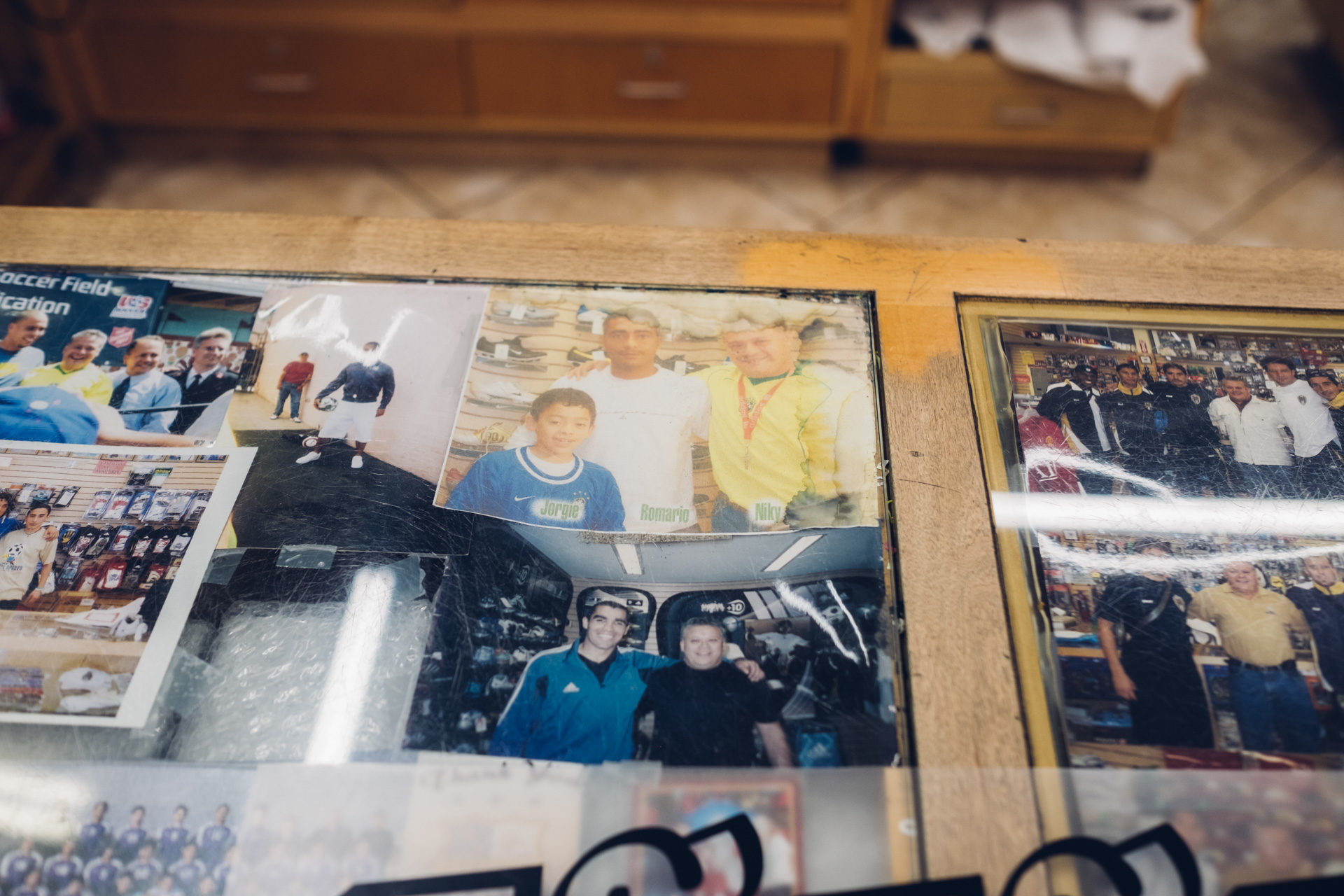
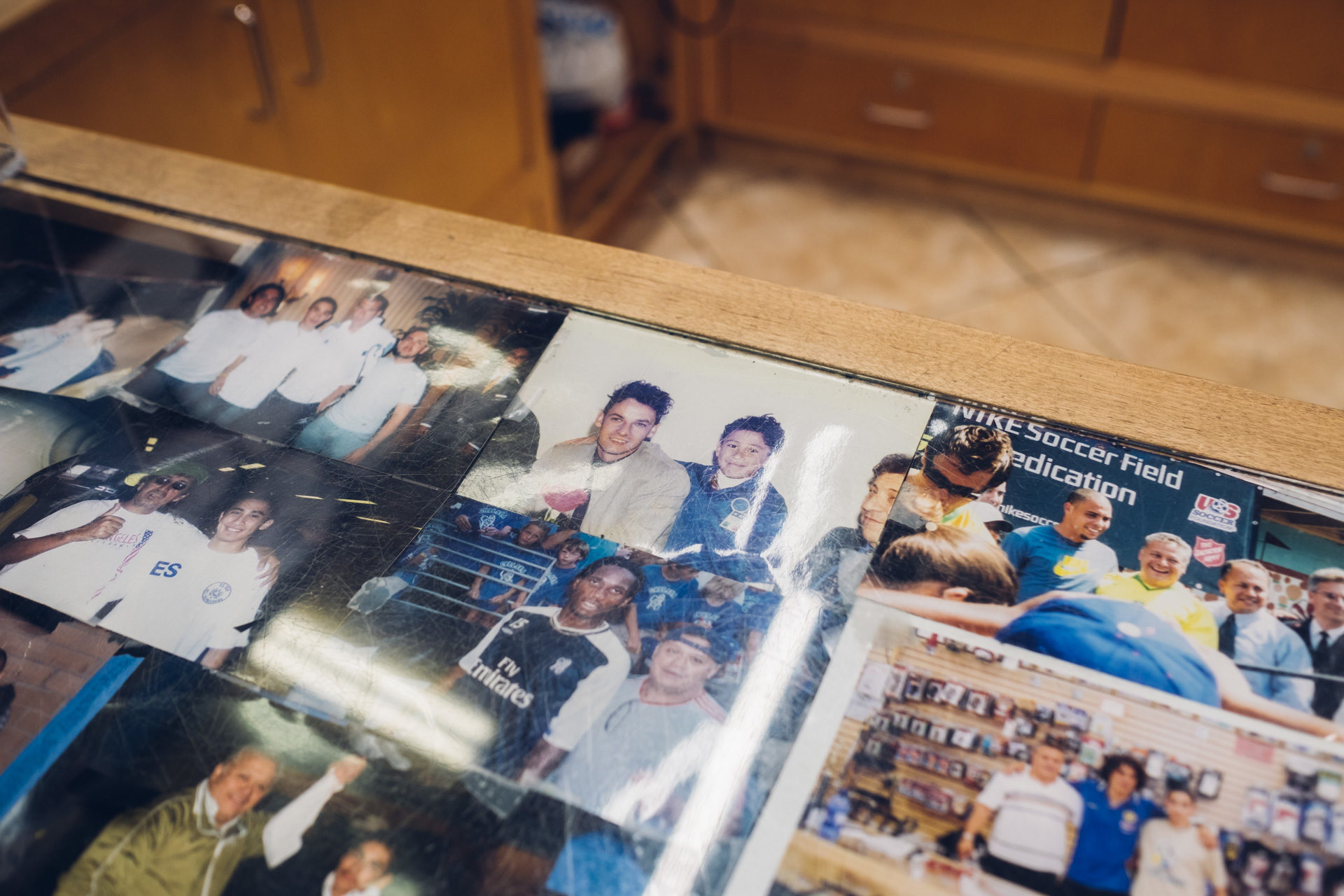
Q: So six stores are owned by your dad and brother, and the other two stores are owned by other family members. But the entire Niky’s organization is run under the same umbrella?
Luis: Correct.
Q: What is your role or title within Niky’s sports?
Luis: I guess you can label me the CEO. I don’t like labels, but I am the one that is in charge of putting the plan together for the businesses. Where we want to grow. How we want to go about it. Where our biggest opportunities are and what are the biggest threats to the business.
Q: You have eight stores. Has it been steady growth or has expansion been in more recent years?
Luis: We had two stores for I think eight or ten years. When I graduated from college and I really started diving into our business, I felt like we had a huge opportunity to expand. LA is huge and there are so many people that play soccer and I always felt there was room to grow. We couldn’t reach everybody at that point as we only had two stores.
In my opinion, to reach more people you have to have a physical footprint to really affect those communities. Online is a great tool that we utilize, but there is nothing like going into a store and trying on new boots. That is such a unique experience that you can’t have online. The things that we specialize in, we feel we have to have a brick and mortar experience for that.
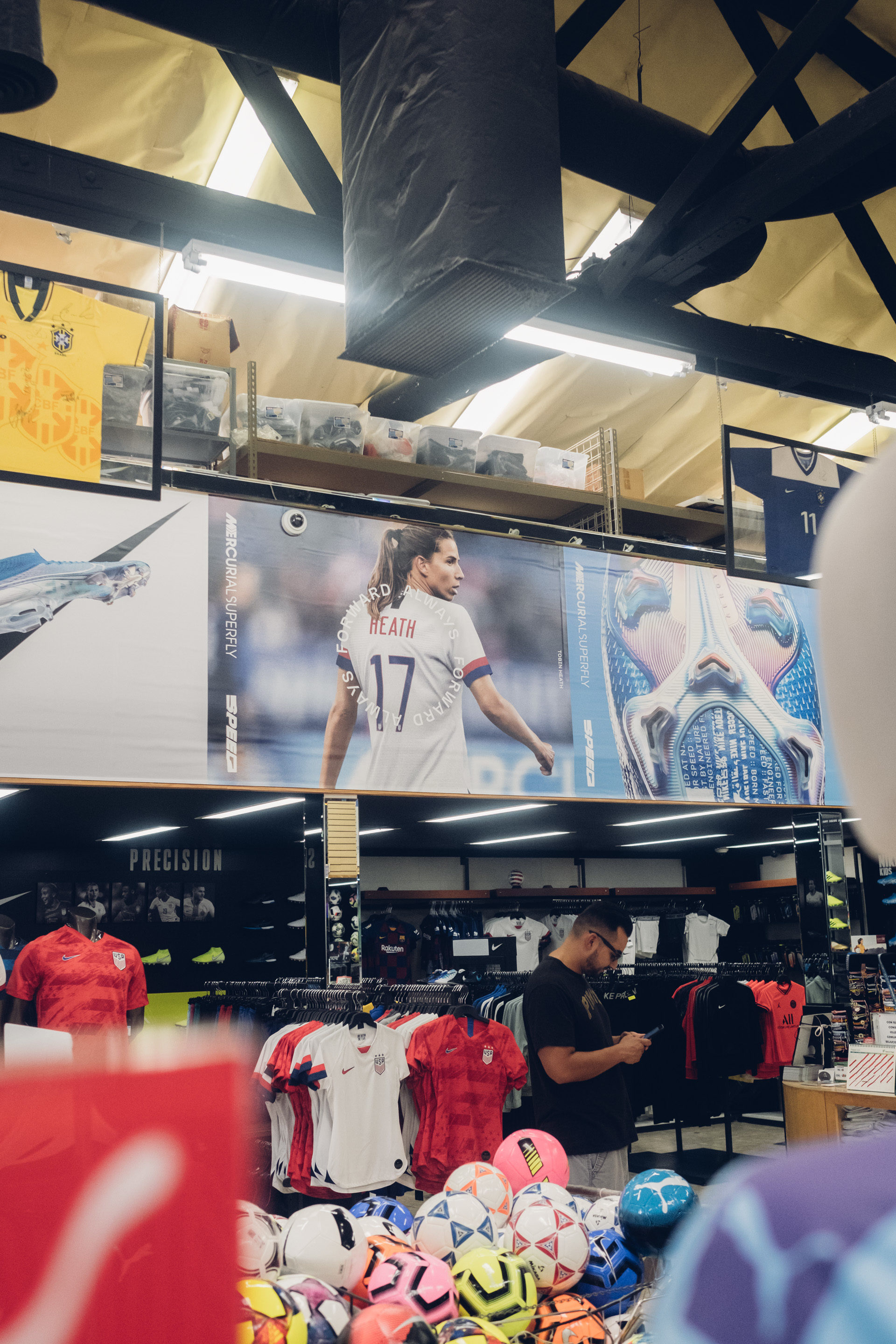
Q: You went to school at Cal Poly Pomona, but what were the early years like for Luis? Did you play soccer? Spend lots of times at the stores? What was that like?
Luis: All I wanted to do was play soccer. I started playing when I was four. I played high school. I played a little bit of club soccer. But when I was younger my dad started this organization that was meant to give kids from El Salvador an opportunity to show their talent to not only professional teams from El Salvador but also to the federation. Unfortunately because of the civil war, a lot of people left El Salvador and came here to LA. So there is a massive Salvadorian community here and my dad saw that as an opportunity, so he and a couple friends created an organization where if you were a kid of El Salvadorian descent, you could play. And we became really, really good. We would play professional teams from El Salvador. Our first team was like a little academy. Unfortunately that doesn’t exist anymore, but it was a great opportunity for a lot of kids.
Q: What was it like growing up loving soccer and being able to go into a soccer store everyday and see all the latest products?
Luis: It was awesome, dude. I would see all the new boots before everybody else. I remember being on the phone at like 14 or 15 years old and calling people in places like Spain and Argentina. Trying to get Atletico Madrid jerseys. Trying to get Boca Juniors and River Plate jerseys. Products like that didn’t exist here. There wasn’t a licensed jersey business here. But we had people asking for them so we would try and get them.
Every aspect of my life revolved around the store. I would come here after high school. Every day after school I would come here. In the summers I was here everyday. When I would have a game on a Saturday, I would play my game and then come back to the store. And it never bothered me. I always wanted to do it. It was awesome.
Early on my dad bought one of those massive satellite dishes. Not the small ones they have now. But the giant ones that were around back in the day. That was the only way back then that we could get all the European games. We would watch them all at my dad’s store.
At that time Serie A was the league. My dad and I would get up super early to come and watch games at the store. There would already be like six or eight of his friends outside waiting to watch the games with us.
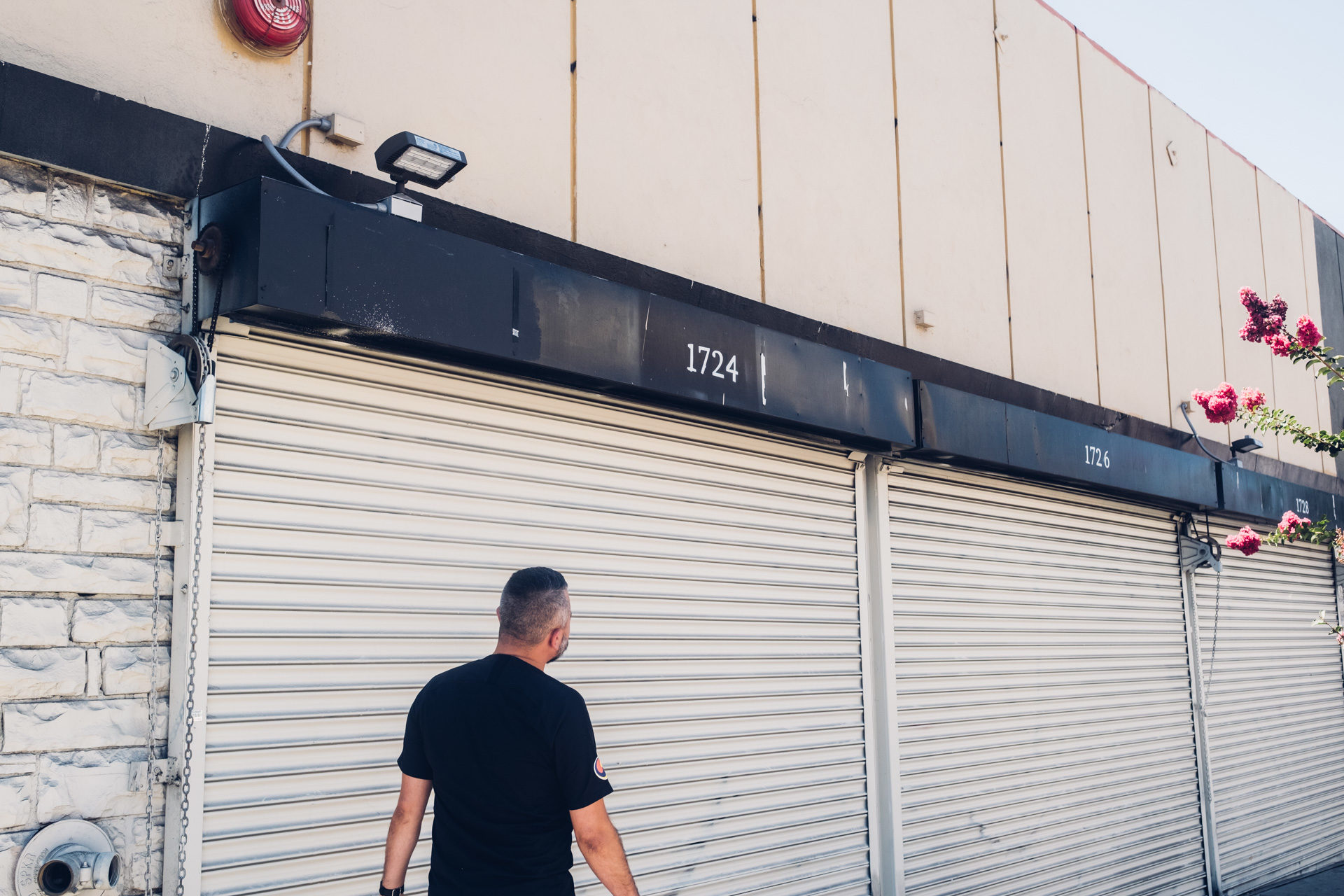
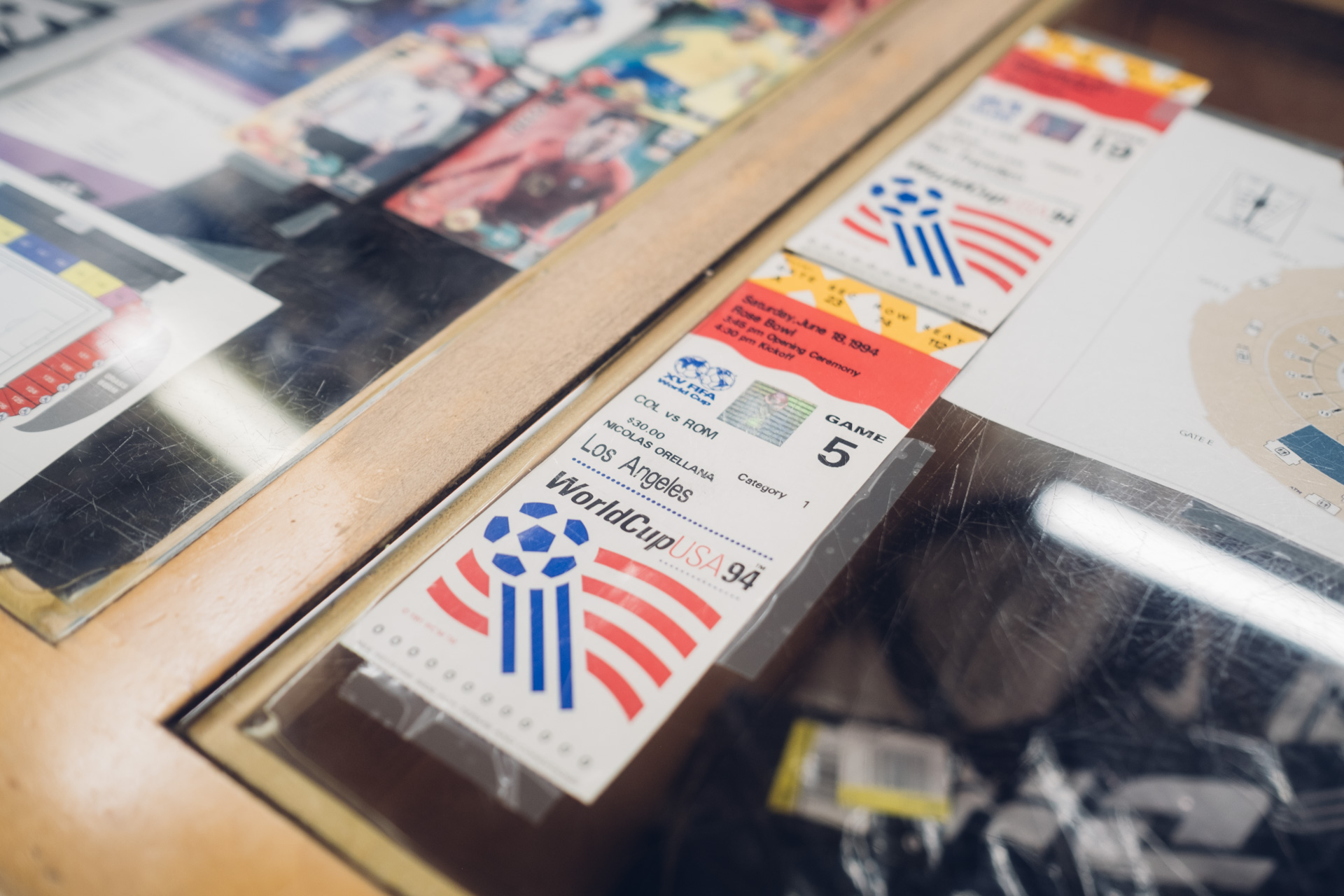
Q: Your dad sounds like a staple of the community. He had his stores. People would come in to the store to hang, watch games and be a part of what was going on there. He helped start an organization that helped young Salvadorian kids to play soccer. How important is that sort of community role been to the success of Niky’s over the years?
Luis: I think it’s been vital because our communities understand that we are invested in them. Sure we are here to service you when you need cleats and balls and shinguards. But we’re also trying to inspire some kids or give some kids a chance. The object of that program that my dad helped start was to give kids a chance.
We want the communities that we are involved in to understand that we are more than just a soccer shop. We do events and we try to give back to local schools and community organizations because we’re not just here to sell you products, but we’re also here to help grow the sport that we love.
Q: It seems like this is an example of the better that Niky’s does as a positive member of the community, the better the business does overall.
Luis: I also think you have to be authentic when doing it. This sport means so much to so many people and you have to try and do things the right way. The soccer community here in LA is so knowledgeable and so diverse and they have been around a long time. Futbol in LA isn’t new here. What is happening here with the local MLS teams is incredible but the sport has been a huge part of the community for a very long time here.
Q: In the years since you have worked at Niky’s full-time, the sport has grown quite a bit here in LA. What are some of the ways in which you have seen that are maybe more specific to LA?
Luis: There’s more attention to it now. There’s more national and global eyes on LA from a soccer perspective. But if you look at what futbol means to this city, it’s a super important part of this city, it’s been vital. It’s instrumental. Because of the large immigrant community. It’s a diverse community. The Central and South American influence is huge. That’s always been here. Now, there’s just a lot more eyeballs on the sport and a lot more investment as well. From the league perspective. The brands are making bigger investments and making it a focus globally. That’s all helped grow the game to new heights. Thats the only difference. The passion and love for it hasn’t changed.
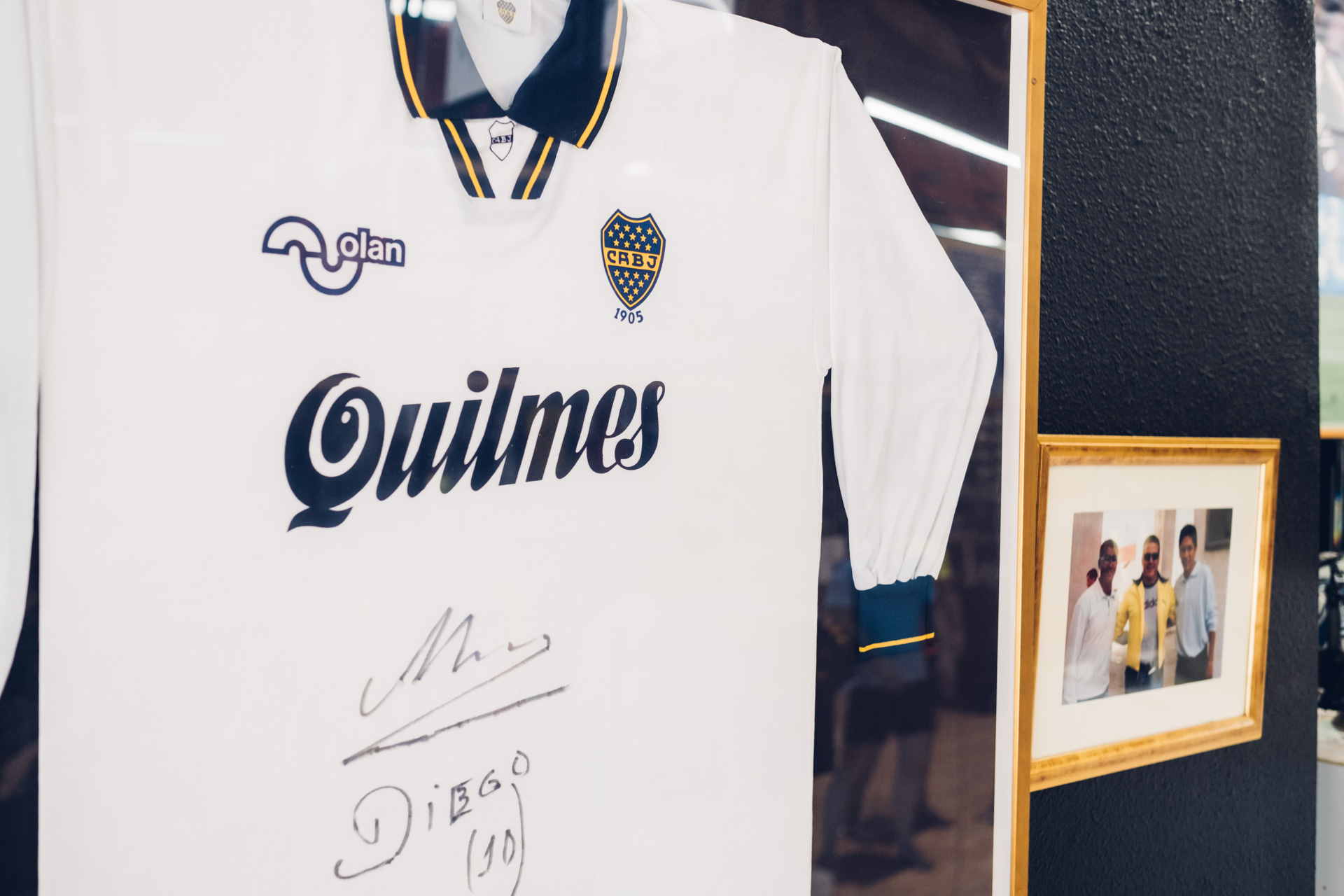
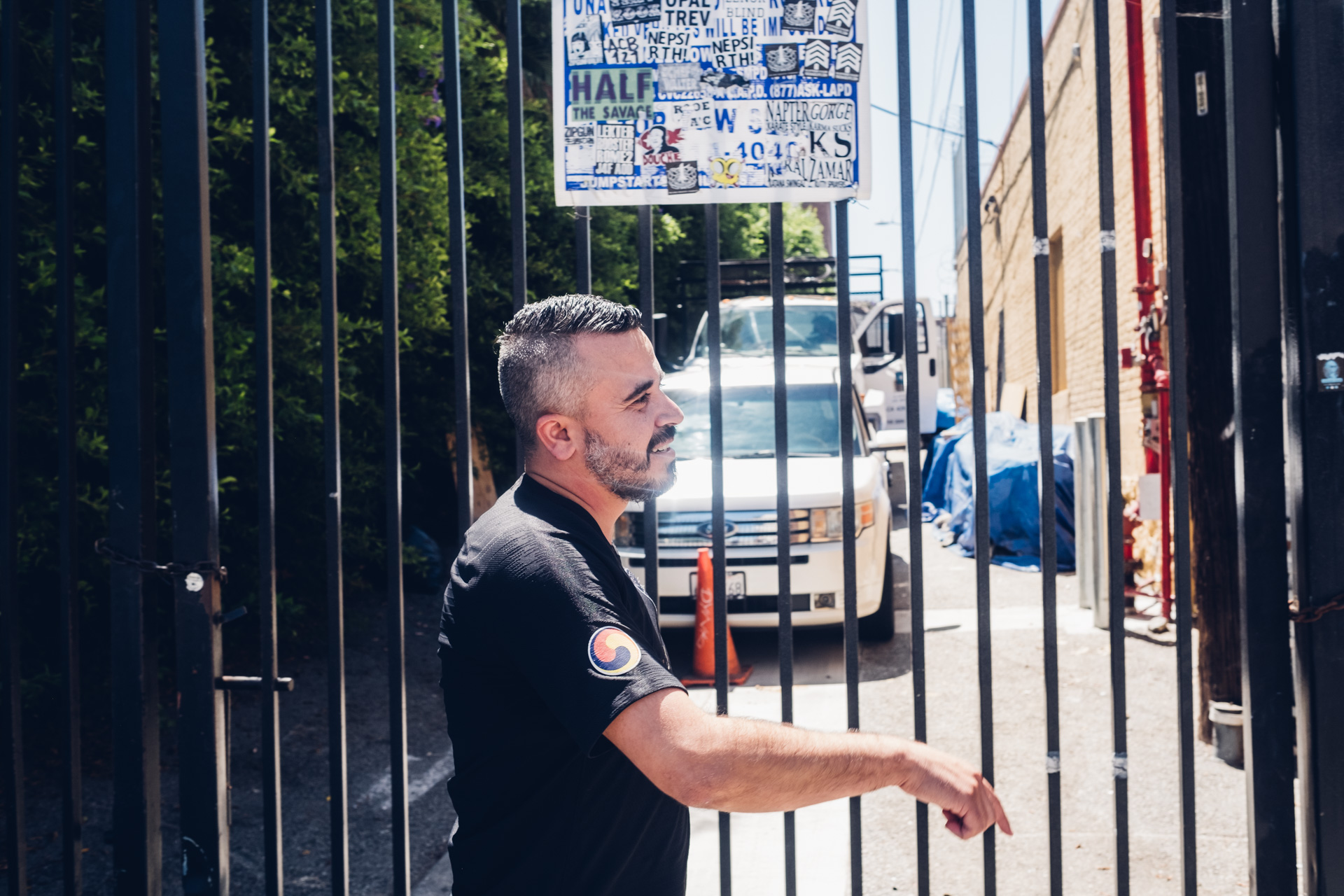
Q: As the game has grown here, have you seen an overall rise of awareness from people who maybe aren’t core soccer fans?
Luis: I think the biggest difference we have seen is from a more casual fan. A large part of that has to do with LAFC. There are a lot more fans that are casual fans. They might not know as much about the sport. They might not have really played the sport as a kid. But something about the experience is helping them gravitate to soccer. We started working with LAFC pretty much as soon as they were announced. That investment for us and working with them has really paid off for us.
Interesting though, we have also seen a rise in Galaxy jerseys as well. That’s awesome to see too. LAFC really galvanized the Galaxy fanbase and they have come out and supported their teams and made sure people know that they have been Galaxy fans for a long time.
Q: You spoke about the diversity of LA and the local immigrant community. LA is a very diverse place and soccer is sort of an extension of that notion. The way that you guys have grown kind of seems to follow that. You’re downtown, you’re in the inner cities, but you’re also on the westside and in the valley that may be more suburban. As a brand, you guys seem to be a representation of what soccer culture looks like in LA. Is that something you find to be true and is this something that you guys plan and strategize around?
Luis: Thats exactly what we do. Soccer doesn’t discriminate. It is inclusive for all types of people and social status and class. If we want to service every soccer playing person of this huge community then we have to be in all these places. So we have a store in West LA where it might be a more affluent customer and it may be a different customer than a customer here in downtown. It doesn’t matter where you live or your social class, the soccer community needs to be serviced the right way. We’re very proud and very confident that we have the knowledge and the experience to service the soccer community in a very unique way.
Our biggest objective is that everyone that walks in our store walks out with the right items that they need to enjoy this game.
Q: I imagine that is based on a fundamental love that you all have for the game.
It’s about futbol. That’s all. If we don’t care about the game we’re not going to be successful in this thing. But everyone that works for us has a love for the game. It’s instrumental. If you want to do what we do you have to love this. If we’re not true to the game then we’re done. If we don’t display that every time someone comes in our stores, that this is about futbol/soccer, then we are done. That’s our biggest opportunity—show everyone that we are authentic to the game and the city and that we know what we are talking about. I think that’s really, really important.
Q: You mentioned earlier that you went from two stores to eight in a relatively short period of time. And its seems that you guys did that in a time when other retailers are closing doors. What makes Niky’s successful in a time when other retailers are struggling?
Luis: First of all, let me say that nobody here at our business takes any joy from seeing a competitor go out of business. That genuinely bothers me. I know how much blood, sweat and tears people put into something like this. It’s not easy, man. I feel for them. I really, really do.
I think we’re successful because we’re authentic and through our hard work and persistence in the market place, we’ve been able to get people’s vote of confidence. They know that when they come into our store they are going to get treated right and that they will find what they need. I think our service and knowledge sets us apart. It’s not easy. But I think our experience, knowledge and the shopping experience make a huge difference for us. We’re proud of the stores and how we have created a new shopping experience for kids. Why can’t kids in the inner-city have a great shopping experience? Every consumer deserves that and our goal is to provide that for everyone.
I remember being a kid and trying on new boots and what that felt like and what that experience was like. We want to create that for every customer that comes in the door.
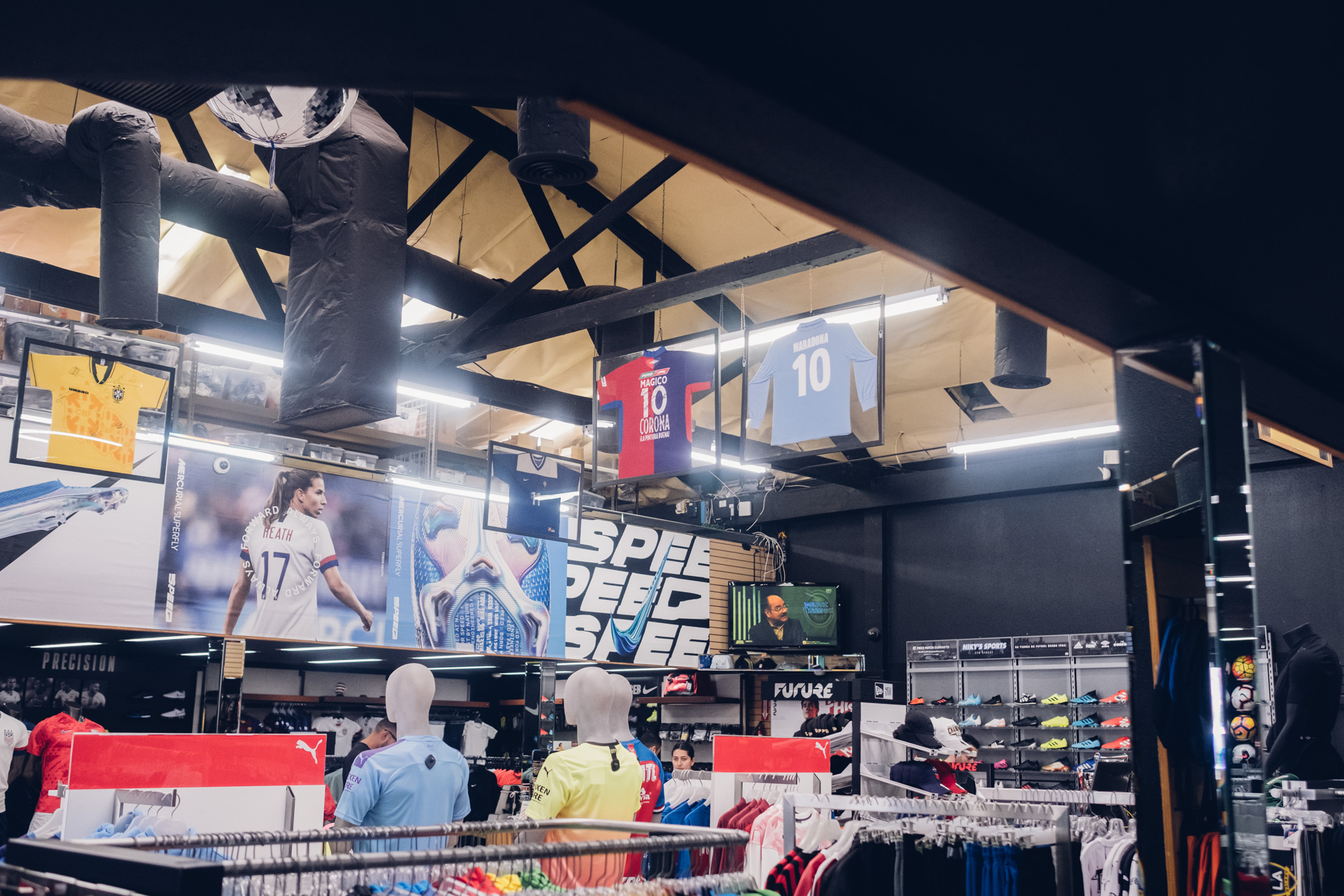
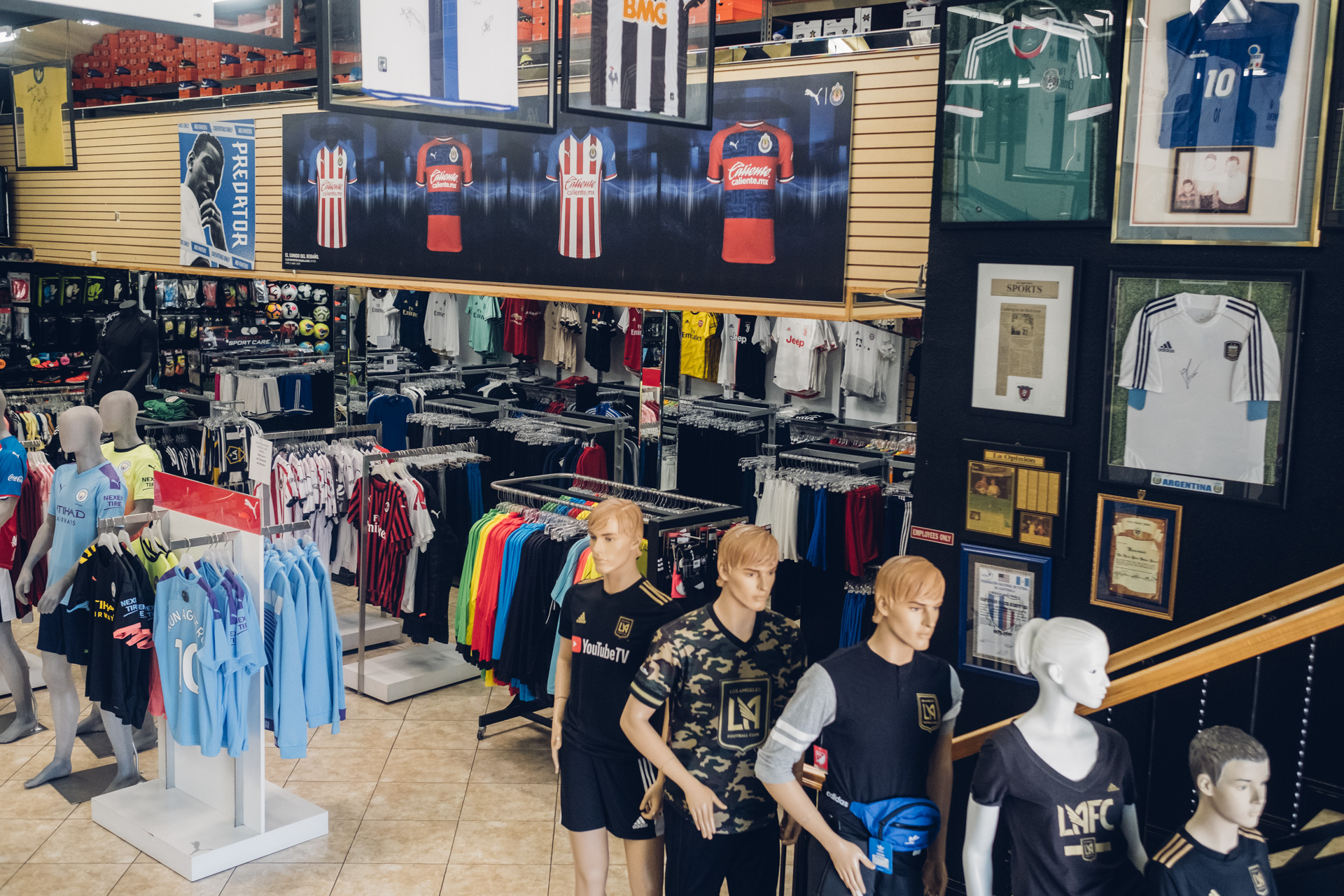
Q: When I look at Niky’s it seems that you guys connect with the city and the cultural aspect beyond just the sport. Is that true and does that make you guys even more unique as a soccer retailer in Los Angeles?
Luis: You are 100% correct. Futbol in this city cuts deep and there are so many creatives in this city and that gives us an opportunity to work on special projects that might have nothing to do with a cleat or a jersey. I’ve been a big proponent of soccer culture for years. I’m all about taking risks with local brands and with local artists to create special items and deliver them to the community. I believe there is an appetite here for that kind of stuff.
We’ve worked with LAFC, we’ve done popups with local brand FC Dorsum. We’ve done collaborations with local artists like Nevermade, he’s a graffiti artist that did a great collection with us for LAFC. We’ve done stuff with Guillermo Andrade from 424. All these things have a huge cultural impact. Not only to the game but quite frankly to the city. These are real LA stories—and if we can tell these stories and reach some kids. That’s the best, man.
Q: Speaking of LA stories, you did a project with PUMA that explored LA neighborhoods through footwear. Tell us about that.
Luis: That project was 18 months ago now. About three years ago PUMA came to us and said they wanted to do a project with key specialty soccer partners around the globe. For the US part of this, they wanted to partner with Niky’s and they wanted us to do it around LA. I think there were only four accounts across the world that were a part of this project. I told them from the beginning that this has to be about LA and they were super supportive of that.
We worked with another local artist, Qudo. The idea of the pack was that our first store was in downtown LA. In downtown LA there are a lot of different districts. We chose three to focus on: the flower district, the jewelry district and the garment district. We made three shoes inspired by those districts. We were really proud of that collaboration. It was promoted globally by PUMA. Antoine Griezmann wore one of the cleats. He was supposed to wear them for one game but he ended up liking them so much he wore them for like four or five games. That was a great project and we’re actually working on the second version of that now.
Q: How did it feel when you saw Griezmann wear something that you guys created?
Luis: CRAZY!! I couldn’t believe it. It gave us a great sense of pride. All the work that we have put in as a family was recognized globally. That was really special.
Q: You seem to have a great vision of where you see Niky’s going in the future. Can you talk a little about that?
Luis: I think we have a huge potential as a company. We have ambitious plans leading up to the Olympics and World Cup coming here. We’re hoping that the Women’s World Cup will be here soon. We’re bullish on our brick and mortar presence. We understand that we need to invest in digital, but we want to invest in digital to help it grow our brick and mortar and for both to compliment one another. We want to open more physical stores in cities that have asked us for a store. Continue working on collaborations with the local teams. Bring energy and differentiation to the soccer experience. And continue to show our love for the sport and our love for LA.

